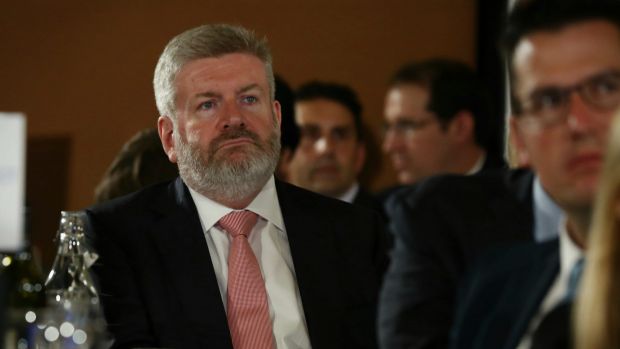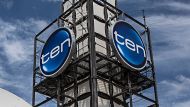Channel Ten has been forced to go into voluntary administration after its billionaire shareholders told it on the weekend they would no longer guarantee a key loan, putting the company at risk of insolvency.
The TV broadcaster has appointed KordaMentha as voluntary administrators of the company and its subsidiaries, it announced in a statement to the ASX on Wednesday morning. Trading in Ten shares - which closed at 16 cents on Friday - has been suspended.
More BusinessDay Videos
Network Ten placed into voluntary administration
Broadcaster Ten has gone into voluntary administration one day after it halted trading shares on the ASX. Vision courtesy ABC News
Communications Minister Mitch Fifield used Ten's troubles to urge Labor and cross benchers to pass media reform laws.
"Network Ten's announcement today that it will enter voluntary administration is a wake-up call to opponents of media reform," he said on Wednesday afternoon.

"This is a difficult and stressful time for Ten's staff and their families who are facing an uncertain future. That a major Australian media organisation is in such difficulty should be a matter of concern."
"There is a lot of talk about media diversity, but the greatest threat to diversity in Australian media would be the failure of Australian media organisations."
Having lost the support of billionaire backers Lachlan Murdoch and regional TV network owner Bruce Gordon, Ten "left the directors with no choice but to appoint administrators", the statement said.
The administrators are expected to work closely with Ten's management, employees, suppliers and content partners while undertaking a financial and operational assessment of the company.

During this period, operations would continue "as much as possible on a business as usual basis". Viewers are unlikely to notice any immediate change to broadcasting and scheduling.
"The directors of Ten regret very much that these circumstances have come to pass," the statement read.
The board wished the troubled broadcaster and its management "all success in the future as the administrators look to the potential sale or recapitalisation of the business".
"[The board] wish to take this opportunity to thank all Ten employees and contractors for their commitment and enthusiasm for Ten's programs and business."
A committee of creditors will meet before next Thursday, to be followed by a second meeting to be held by July 20, when KordaMentha will propose either returning Ten to the board of directors, selling it, or giving creditors control. Creditors currently include Commonwealth Bank, which is owed $200 million by December 23.
The statement said Ten had identified savings that would boost earnings by $50 million in the 2018 financial year and $80 million in the following year. It also believes it could halve the cost of output contracts with CBS and 20th Century Fox, believed to cost between $100 million and $150 million a year.
If the media reform legislation passes it would also cut Ten's annual licence fee, which costs about $22 million, and replace it with a $12 million spectrum fee. However, the reforms are currently opposed by Labor and key cross benchers because it would also lift ownership restrictions, which would allow a single person to own radio, print and television assets in a single city.
Apart from Mr Murdoch and Mr Gordon, major shareholders include Foxtel with 13.9 per cent, Gina Rinehart's Hancock Prospecting with 8.26 per cent and James Packer with 7.5 per cent. Seven Group Holdings, also owns a 3.3 per cent stake through Network Investment Holding.
The Australian Shareholders Association on Tuesday urged Ten's board not to rush into administration, saying it should instead suspend trading until it could find other sources of funding or until media reform laws pass.
It also called for more independent directors.
"Given the substantial conflicts of interest and potential related party transactions at play, ASA believes TEN needs to immediately move to a conventional board with a majority of independent directors," ASA chief executive Judith Fox said.












